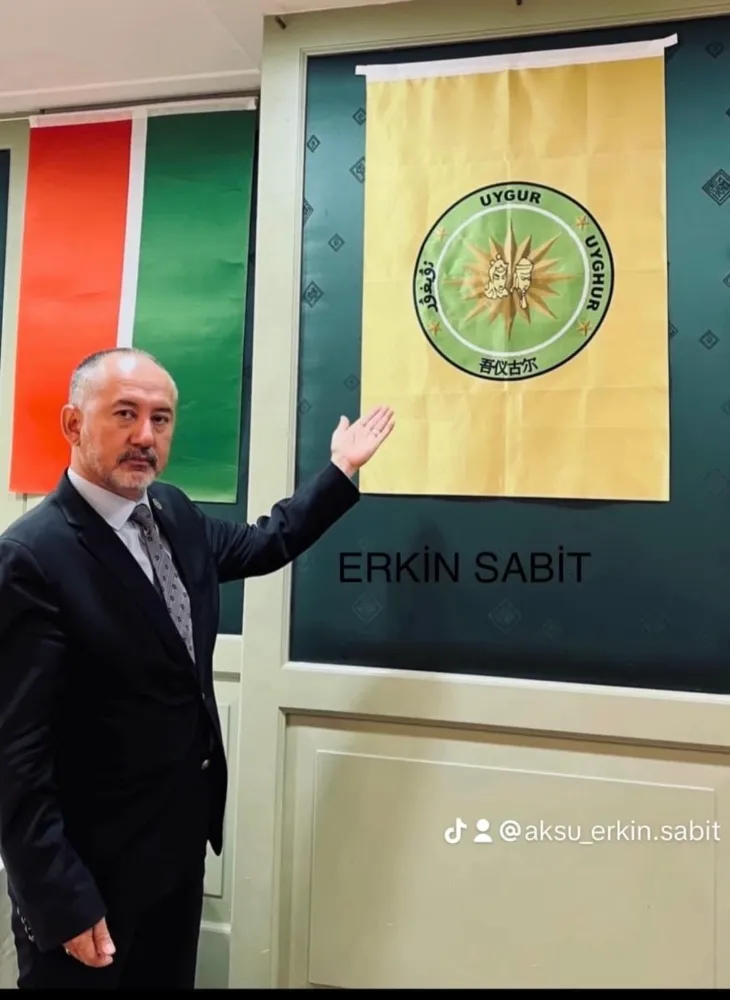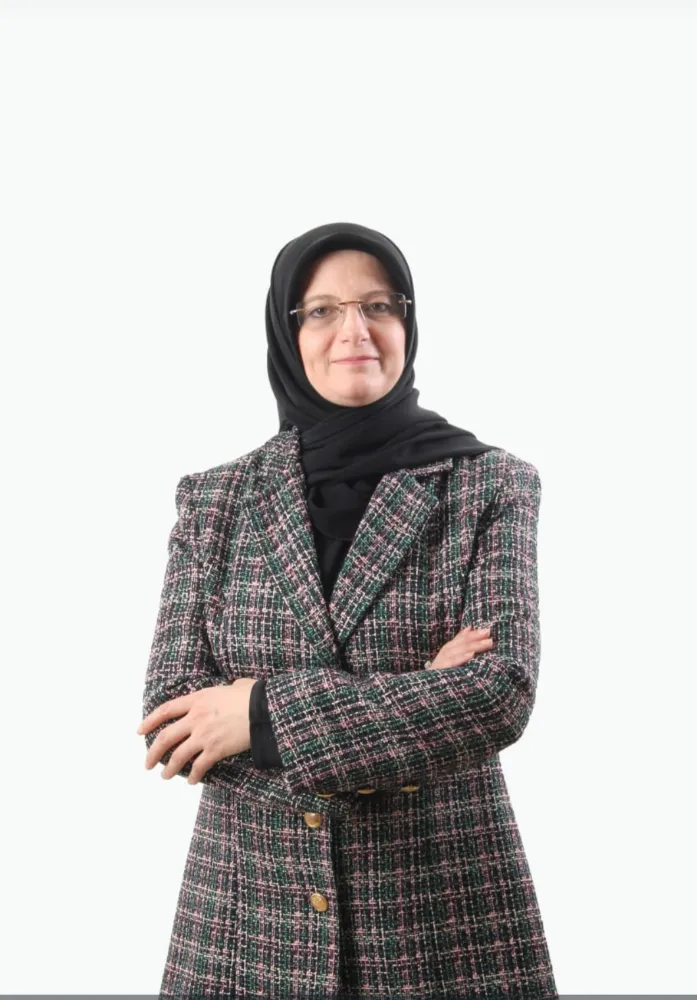
BİRLEŞMİŞ MİLLETLER’E SUNULMAK ÜZERE RESMİ RAPOR
Konu: Uygur Halkının Ulus-Millet Statüsü ve Uluslararası Hukuktan Doğan Haklarının Korunması
Hazırlayan: Erkin Sabit Şavuot Uygur Federasyonu Genel Başkanı.
Tarih: 16/08/2025
Gönderildiği Yer: Birleşmiş Milletler Genel Sekreterliği, İnsan Hakları Yüksek Komiserliği, BM Genel Kurulu ve Güvenlik Konseyi Üyeleri
I. Giriş
Bu rapor, Birleşmiş Milletler Şartı, 1948 İnsan Hakları Evrensel Beyannamesi, 1966 Medeni ve Siyasi Haklar Sözleşmesi (ICCPR), 1966 Ekonomik, Sosyal ve Kültürel Haklar Sözleşmesi (ICESCR) ve 1948 Soykırım Suçunun Önlenmesi ve Cezalandırılması Sözleşmesi temelinde hazırlanmıştır.
Amaç, Uygur halkının tarihsel ve hukuki statüsünü uluslararası topluma yeniden hatırlatmak ve mevcut ağır insan hakları ihlallerine karşı Birleşmiş Milletler mekanizmalarının devreye sokulmasını talep etmektir.
II. Ulus-Devlet Kavramı ve Uygur Kimliği
Uygur halkı, Dünya medeniyet ailesinin kadim ve asli unsurlarından biridir. tecrübeleri, yazı dili, kültürü ve inanç sistemi ile bağımsız bir ulus-millet kimliğine sahiptir.
III. Uygur Halkının Tarihsel Statüsü
Uygur halkı, tarih boyunca defalarca devlet kurmuş, kendi siyasi, sosyal ve kültürel düzenini tesis etmiştir:
• Uygur Kağanlığı (744–840),
• Uygur İdikut Devleti (9.–13. yüzyıllar),
. 1862-1865 Aksu Uygur Devleti Aksu
. 1763-1876 Kaşgar Uygur Devleti Kaşgar
. 1867-1874 İlhan Uygur Devleti Gulca
• 1933 Doğu Türkistan İslam Cumhuriyeti,Kaşgar
• 1944 Doğu Türkistan Cumhuriyeti.Gulca
. 1946 China Türkistan Uygur Devleti Urumchi
Bu tecrübeler, Uygur halkının tarihsel ve siyasal varlığını kanıtlamaktadır. Dolayısıyla, Uygur millitinin “ulus-millet” statüsünün tartışmaya açılması, tarihsel gerçeklerle bağdaşmamaktadır.çünkü Uygur tarihte var olan bir Uygur millet .
IV. Mevcut Durum ve Uluslararası Hukuka Aykırılıklar
Günümüzde Uygur milliti, sistematik olarak:
• Toplama kamplarına, zorla asimilasyon politikalarına, kitlesel gözetim ve keyfi tutuklamalara,
• İnanç özgürlüğü ve ibadet haklarının kısıtlanmasına,
• Demografik mühendislik politikalarıyla doğum oranlarının düşürülmesine,
• Kültürel ve dilsel kimliğinin yok edilmesine
maruz bırakılmaktadır.
Bu durum, aşağıdaki uluslararası sözleşmelere açıkça aykırıdır:
• BM Şartı (Madde 1 ve 55 – ulusların kendi kaderini tayin hakkı),
• İnsan Hakları Evrensel Beyannamesi (Madde 2, 7, 18, 19, 20),
• ICCPR (özellikle Madde 18 – din ve vicdan özgürlüğü, Madde 27 – azınlık hakları),
• ICESCR (Madde 15 – kültürel yaşama katılma hakkı),
• Soykırım Sözleşmesi (Madde 2 – soykırım fiillerinin tanımı).
V. BM’den Talep ve Öneriler
1. Bağımsız Soruşturma Mekanizması: BM İnsan Hakları Konseyi bünyesinde, Uygur bölgesinde meydana gelen ihlalleri soruşturmak üzere bağımsız ve uluslararası bir komisyon kurulmalıdır.
2. Acil Koruma Önlemleri: BM Güvenlik Konseyi, Uygur halkına yönelik soykırım iddiaları kapsamında koruma sorumluluğunu (Responsibility to Protect - R2P) devreye sokmalıdır.
3. Uluslararası Ceza Mahkemesi (UCM): Çin halk cumhuriyeti yönetiminin uygulamaları, Roma Statüsü çerçevesinde insanlığa karşı suçlar ve soykırım suçu kapsamında değerlendirilerek UCM’ye sevk edilmelidir.
4. Kültürel Hakların Korunması: UNESCO ve ilgili BM mekanizmaları, Uygur kültürel mirasının yok edilmesine karşı önleyici tedbirler almalıdır.
5. Mülteci ve Diaspora Hakları: BM Mülteciler Yüksek Komiserliği (UNHCR), Uygur diasporasının güvenliği ve statüsünün korunması için özel bir izleme programı başlatmalıdır.
VI. Sonuç
Uygur halkı, tarihsel ve hukuki olarak ulus-millet statüsüne sahip, kendi devlet tecrübesi ve medeniyetini yaratmış kadim bir millettir. Bugün uluslararası toplumun görevi, bu statüyü tartışmaya açmak değil; aksine, korumak ve güvence altına almaktır.
Birleşmiş Milletler’in temel ilkeleri – insan haklarının korunması, ulusların kendi kaderini tayin hakkı, uluslararası barış ve güvenliğin tesisi – Uygur meselesinde sınanmaktadır.
Bu bağlamda, BM’nin atacağı adımlar, yalnızca Uygur milletinin geleceğini değil, aynı zamanda uluslararası hukukun ve küresel adalet düzeninin güvenilirliğini belirleyecektir.
Erkin SABİT ŞAVUOT
(bilgisayar yüksek mühendisi.Araştırmacı yazar)
Doğu Türkistan Cumhuriyeti Hükümet Başkanı.
Turan Konfederasyonu Genel Başkanı
Uygur Federasyonu Genel Başkanı.
Dünya Barış elçileri uzakdoğu direktörü.
Uluslararası basın yayın Konfederasyonu diplomasisi direktörü.
Uzakdoğu ticaret yatırım finans konseyi temsilcisi
Turan Kızılelma Teşkilatı genel başkanı
Turan Devletleri Teşkilatı TDTStratejik Araştırma genel merkezi Başkanı İletişim;05357951111,05369820000turangrup1111@gmail.com
OFFICIAL REPORT TO BE SUBMITTED TO THE UNITED NATIONS
Subject: The Nationhood Status of the Uyghur People and the Protection of Rights Arising from International Law
Prepared by: Erkin Sabit Shavuot, President of the Uyghur Federation
Date: 16/08/2025
Submitted to: The United Nations Secretary-General, The United Nations High Commissioner for Human Rights, The UN General Assembly, and Members of the UN Security Council
I. Introduction
This report has been prepared on the basis of the Charter of the United Nations, the 1948 Universal Declaration of Human Rights, the 1966 International Covenant on Civil and Political Rights (ICCPR), the 1966 International Covenant on Economic, Social and Cultural Rights (ICESCR), and the 1948 Convention on the Prevention and Punishment of the Crime of Genocide.
The purpose is to reaffirm to the international community the historical and legal status of the Uyghur people and to call for the activation of United Nations mechanisms in response to ongoing grave human rights violations.
II. The Nation-State Concept and Uyghur Identity
The Uyghur people are one of the ancient and essential components of the global family of civilizations. With their historical experience, written language, culture, and belief system, they possess an independent nationhood identity.
III. The Historical Status of the Uyghur People
Throughout history, the Uyghur people have established their own states and political, social, and cultural systems:
• Uyghur Khaganate (744–840)
• Uyghur Idiqut State (9th–13th centuries)
• 1862–1865 Aksu Uyghur State, Aksu
• 1763–1876 Kashgar Uyghur State, Kashgar
• 1867–1874 Ilhan Uyghur State, Gulja
• 1933 East Turkestan Islamic Republic, Kashgar
• 1944 East Turkestan Republic, Gulja
• 1946 China Turkestan Uyghur State, Urumchi
These historical experiences constitute undeniable evidence of the Uyghur people’s political and state traditions. Therefore, questioning the Uyghur people’s nationhood status is incompatible with historical reality, for the Uyghur nation is a historically established entity.
IV. Current Situation and Violations of International Law
Today, the Uyghur nation is systematically subjected to:
• Mass internment camps, forced assimilation policies, mass surveillance, and arbitrary detention,
• Severe restrictions on freedom of belief and worship,
• Demographic engineering policies leading to reduced birth rates,
• Systematic eradication of cultural and linguistic identity.
These practices are in clear violation of international law, including:
• The UN Charter (Articles 1 and 55 – the right of peoples to self-determination),
• The Universal Declaration of Human Rights (Articles 2, 7, 18, 19, 20),
• ICCPR (particularly Article 18 – freedom of religion and belief, Article 27 – minority rights),
• ICESCR (Article 15 – the right to participate in cultural life),
• The Genocide Convention (Article 2 – definition of acts of genocide).
V. Requests and Recommendations to the United Nations
1. Independent Investigation Mechanism: The UN Human Rights Council must establish an independent international commission to investigate violations in the Uyghur region.
2. Urgent Protective Measures: The UN Security Council should invoke the principle of the Responsibility to Protect (R2P) regarding the genocide allegations against the Uyghur people.
3. International Criminal Court (ICC): The practices of the People’s Republic of China must be referred to the ICC under the Rome Statute as crimes against humanity and genocide.
4. Protection of Cultural Rights: UNESCO and other relevant UN mechanisms must implement preventive measures against the destruction of Uyghur cultural heritage.
5. Refugee and Diaspora Rights: The UNHCR should launch a special monitoring program to protect the status and security of the Uyghur diaspora.
VI. Conclusion
The Uyghur people, historically and legally, possess full nationhood status and have established their own states and civilization. The responsibility of the international community is not to question this identity, but to protect and safeguard it.
The core principles of the United Nations – the protection of human rights, the right of peoples to self-determination, and the maintenance of international peace and security – are being tested in the case of the Uyghur nation.
Accordingly, the steps the UN takes will determine not only the future of the Uyghur people, but also the credibility of international law and the global justice system.
Erkin SABIT SHAVUOT ŞAVUOT
• Computer Engineer, Researcher & Author
• President, Government of the East Turkestan Republic
• President, Turan Confederation
• President, Uyghur Federation
• Director, World Peace Ambassadors – Far East
• Director of Diplomacy, International Press and Media Confederation
• Representative, Far East Trade, Investment and Finance Council
• President, Turan Kizilelma Organization
• President, Strategic Research Center of the Turan States Organization (TDT)
Contact:
Tel: +90 535 795 1111 / +90 536 982 0000
Email: turangrup1111@gmail.com
